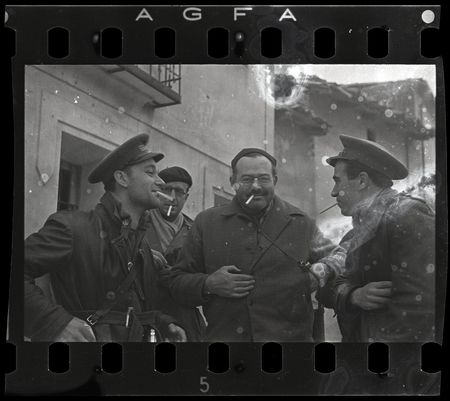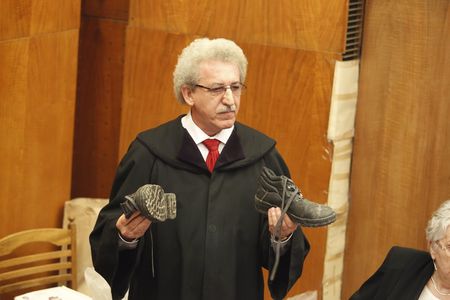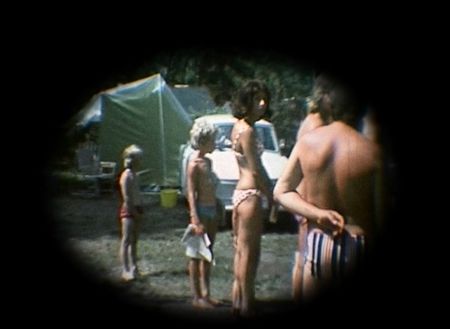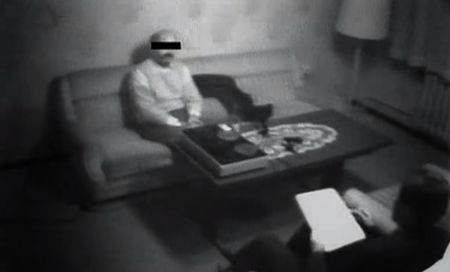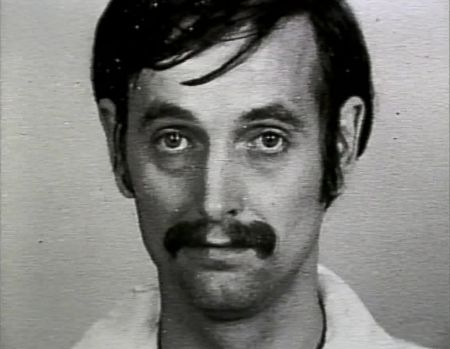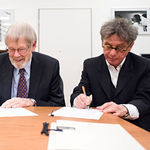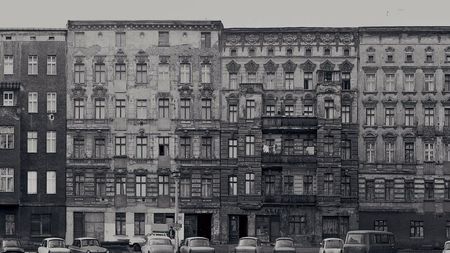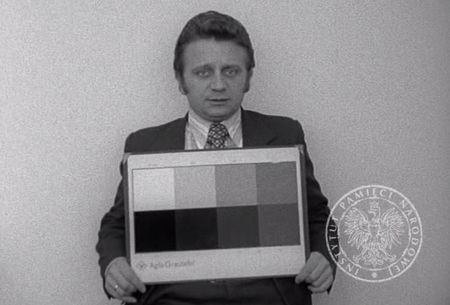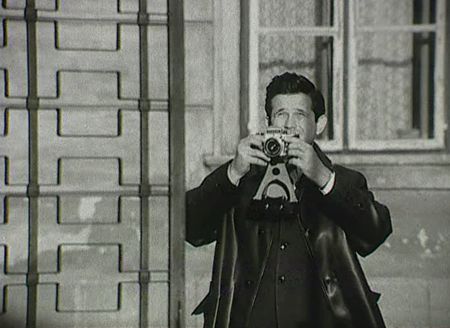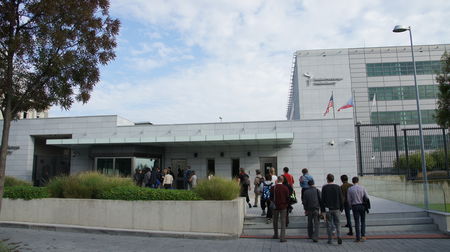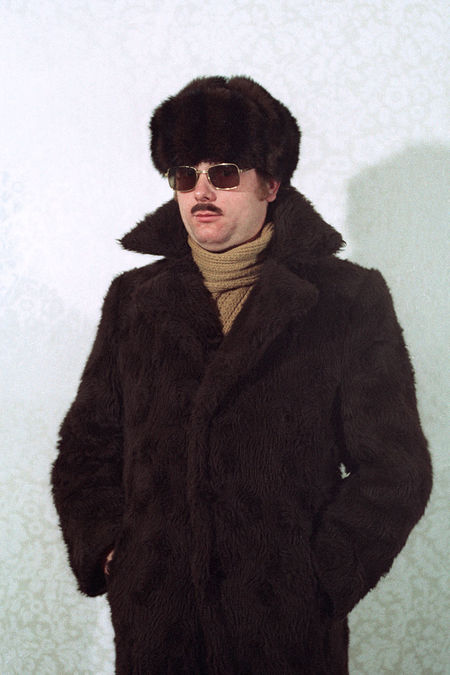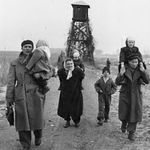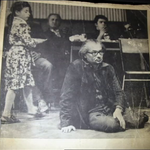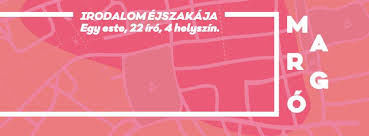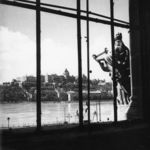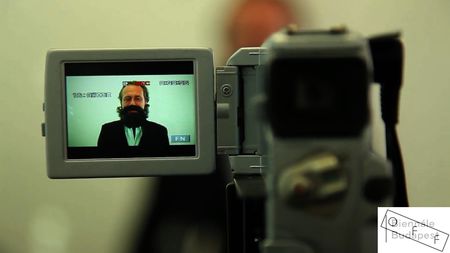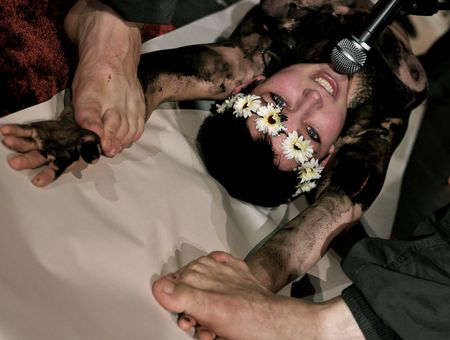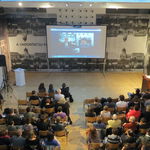Vera and Donald Blinken Open Society Archives
Press Room - 2015
The legendary Mexican Suitcase containing Robert Capa’s Spanish Civil War negatives, considered lost since 1939, has recently been rediscovered and is exhibited here for the first time. The Suitcase is in fact three small boxes containing nearly 4,500 negatives, not only by Capa but also by his fellow photojournalists Chim (David Seymour) and Gerda Taro. These negatives span the course of the Spanish Civil War (1936–39), through Chim’s in-depth coverage from 1936 and early 1937, Taro’s intrepid documentation until her death in battle in July 1937, and Capa’s incisive reportage until the last months of the conflict. Additionally, there are several rolls of film by Fred Stein showing mainly portraits of Taro, which after her death became inextricably linked to images of the war itself. Following the end of the war and amid the chaos of the Germans entering Paris in 1940, the negatives were passed from hand to hand for safekeeping, and ultimately ended up in Mexico City, where they resurfaced in 2007.
On the occasion of closing the Watching You, Watching Me Exhibition
Europe’s Roma communities face deepening challenges of discrimination, violence and poverty. The US. minority rights movement, which has had some notable successes over the past 50 years, also faces continuing problems, including police violence. We believe that a sharing of their struggles would be worthwhile as everyone searches for effective remedies. What were the elements that made the African-American civil rights movement successful? What are the effective models in Europe for Roma integration and opportunity? While there are very different histories and contexts for these minority groups, a sharing of their experiences, tactics, and wisdom could lead to new thinking and effective action in both regions.
3 December 2015, 18:30
Judgment in Hungary
In 2008 and 2009, a group of Hungarian right-wing extremists committed a series of attacks on random members of the Roma community. Six people were killed, including a five-year-old, and another five were injured. The trial of the four suspects lasted two-and-a-half years, and the verdict was passed in August 2013. Director Eszter Hajdú filmed the trial and condensed it to create an oppressive Kammerspielfilm starring the cold-blooded suspects, an irritable judge and the victims’ families. Without any commentary, Hajdú recorded the drawn-out and sometimes chaotic trial from the cramped courtroom’s public gallery. A small static camera shows the judge's point of view, while close-ups highlight the emotions of the people touched by the crime. Sometimes we see the protagonists outside the courtroom, for example during the reconstruction at the crime scene. At the start of the trial, the victims and next of kin assume there will be justice, and they have faith that the Hungarian authorities will protect them. But will the extremists be found guilty? The widespread anti-Roma sentiment in Hungarian society, and the bungling (intentional or otherwise) on the part of the police give them reason to fear they will not. (IDFA)
Eszter Hajdú / 2013 / Hungary / 107 min / Blu-ray / Hungarian with English subtitles
Introduced and analyzed by film director Eszter Hajdú
December 2, 2015. Wednesday 6.30 PM
GermanUnity@Balaton – Honeyland / NémetEgység @ Balatonnál – Mézföld (documentary film)
Home movies, interviews, photographs, and documents from East German and Hungarian secret police archives reconstruct the atmosphere of summers at Balaton in the late socialist period.
Péter Forgács, Hungary, 2011, Hungarian & German with English subtitles, 78 min
Introduction and follow up Q&A with Film Director Péter Forgács
25 NOVEMBER 2015. 6.30 PM
Theme: The Stasi. What were they seeing while watching?
West-Berlin Filmed by a Stasi Movie Camera (training film)
This film is exclusively composed of images of important sights and streets in West-Berlin, filmed by Stasi employees’ Super8 mm camera. It perhaps was used to train DDR agents before their deployment in West Berlin.
DDR, German with English subtitles, 1970, 89 min, 5 min excerpt
Surveillance of the Border Zone at Berlin-Kreuzberg (operative film)
This film shows both East and West German civilians moving around in the border zone fence and checkpoint.
DDR, 1962, 11 min, 5 min excerpt (music added by OSA)
Surveillance of a West-German Citizen in Flemmingen in Nauburg (operative film)
As the microphones of the VHS cameras used for surveillance were not switched off, the comments and conversations between the two Stasi agents were accidentally recorded thus leaving a unique source of information about what the observers were thinking about their subjects.
DDR, German with English subtitles, 1989, 13 min, 5 min excerpt
I Love You All / Aus Liebe Zum Volk
Relieved of his duties and purpose with the closing of the Stasi in 1990, "Mr B." delivers an account of twenty years of his life within the organization, supported by never-before-seen Stasi archive footage.
dir. Eyal Sivan, Germany & France, German with English subtitles, 2004, 88min
A Diplomat (propaganda film)
A cold war story about Colonel Roberto Cantilio, Italian Military Attaché who had been spying ever since he arrived to Hungary in 1959… Hungary, Hungarian with English subtitles, 1962, 8 min
Under the Mask of a Private Citizen / Pod maskou soukromnika (training film)
Combining real and fictional elements, the Communist propaganda film discredits the 1968 Czech emigration and charges them with spying and smuggling in to Czechoslovakia dangerous literature by "West-German students".
Czechoslovakia, 1978, 30 min, Czech and German language with English subtitles, dir. Tibor Podhorec
Source: Ustav Pamati Naroda in Bratislava (UPN), the National Memory Institute, Slovakia
Their Duty Is To Spy / Feladatuk a kémkedés (training film)
A short piece describing methods of counterintelligence propaganda.
Czechoslovakia, 1963, 12 min, in Hungarian with English subtitles, dir. Jaroslav Šikl
Source: Ustav Pamati Naroda in Bratislava (UPN), the National Memory Institute
Introduction and follow up Q&A with Peter Jašek (Historian, The Nation's Memory Institute – Bratislava) and András Mink (Historian, Open Society Archives)
10-15 November, 2015, Budapest /// www.verzio.org
55 films
35 premiers
25 countries
5 venues
F I L M S about
Surveillance states
Refugee experiences
Drone warriors
Left-wing radicals
Censored testimonies
Anti-globalist fighters
Totalitarian role-games
Archival treasures
Secret police confessions
Environmental activists
and much more
Engelbecken
Gamma Bak & Steffen Reck / Germany / 2014 / 80 min / German
Paranoia, depression, avant-garde art, and love: a relationship across the Iron Curtain under a watchful eye of the Stasi, the German secret police.
Secret police film selection from Poland.
Documentary Film Series curated by Oksana Sarkisova (OSA)
October 29, 2015 /// 6 pm /// CEU AUDITORIUM
(Admission is free of charge)
The Arrivals /// Les Arrivants
Patrice Chagnard & Claudine Bories
France /// 2009 /// 111 min /// in French with English subtitles
Visual Studies Platform (VSP) is a cross-disciplinary initiative designed to explore and propose innovative approaches to research and teaching visual imagery in the digital century.
Powered by CEU Humanities Initiative
In connection with the exhibition Watching You, Watching Me, the Open Society Archives, in collaboration with the Goethe Institute in Budapest and secret police archives in Germany, Poland and Slovakia, is showcasing a retrospective film program inspired by the photos of the secret Stasi archives curated by Simon Menner.
Open Society Archives at Central European University presents a public lecture by Thomas A. Dine, Former President of Radio Free Europe/Radio Liberty
Totalitarianism Still Prevails in Europe and Eurasia: The Relevance of Radio Free Europe/Radio Liberty Today
For the first time in Europe, beginning on Wednesday, October 14 at 6:00 pm, the public is invited to the exhibition Moving Walls 22 / Watching You, Watching Me that explores how photography can be both an instrument of surveillance and a tool to expose and challenge its negative impact.
„Gyorskonferencia a Királyi Palota jövőjéről” című nyilvános, szakmai fórum az OSA Archívumban.
History Restaged brings together artists whose practices address the need for critical thinking, and individual and collective responsibility. Employing strategies of staged reconstruction, reenactments, estrangement, humor and irony, the selected works use filmic, literary, archival and art historical references to revisit historically significant events and unsettle our conventional notions of reality.
A front row seat to a resistance movement: the Belarus Free Theatre masters the art of subversive performance between imprisonment and exile.

